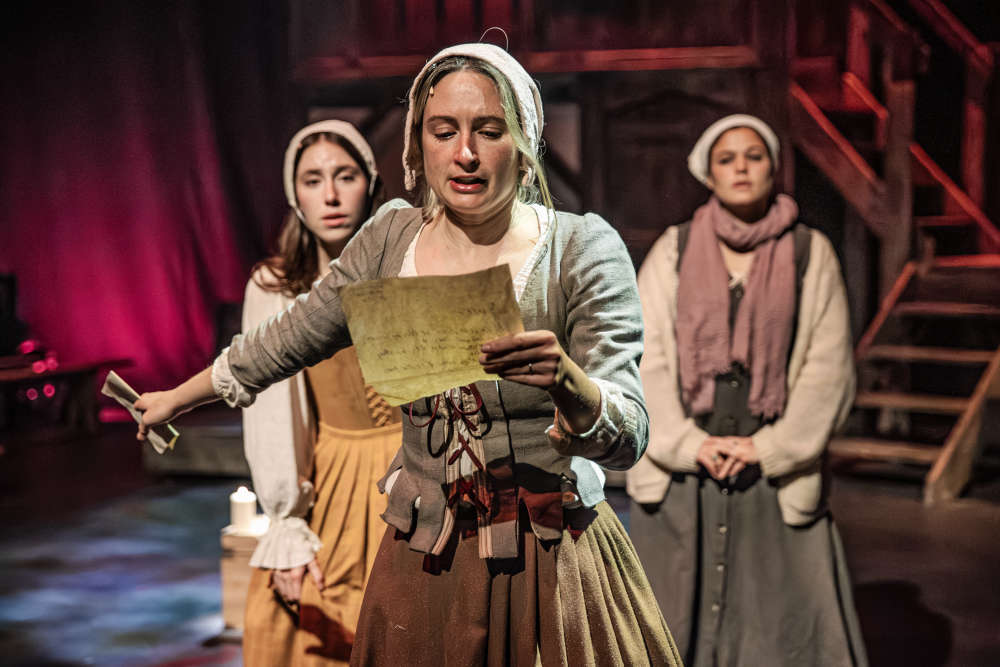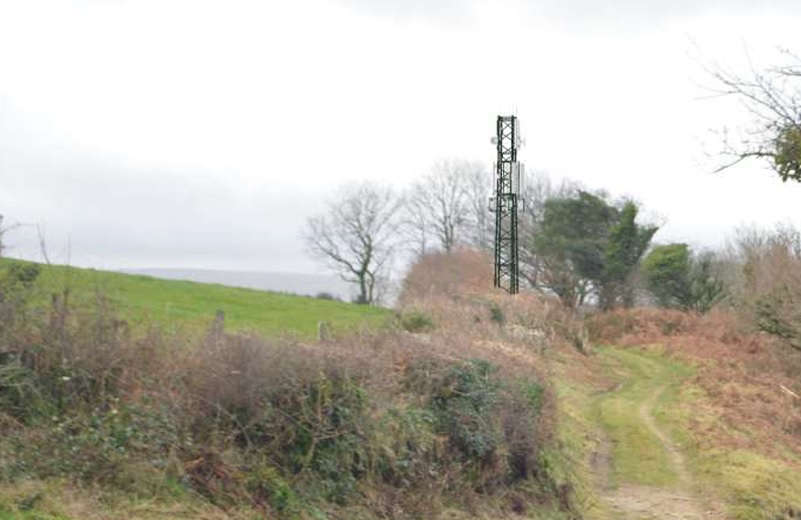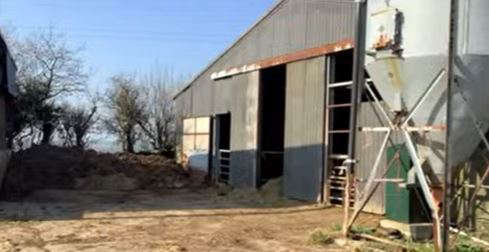
REVIEW: The Commotion at Exeter Northcott

After the final rousing song at the climax of this gritty historical drama, Exeter Northcott’s creative director Martin Berry took to the stage with a similarly rousing message of intent.
He said that the professional cast, backed by a 40-strong community chorus, telling a story rooted in the south west was a “statement piece…about who we are and who we want to be.”
Seeing the stage so full and dynamic, bursting with energy and talent, you can only hope that despite the current grim economics of the arts, that this will be the case. Berry’s marshalling of considerable local talent and his infectious enthusiasm is welcome.
There is a lot to enjoy here and a wave of positive energy that you hope will carry the Northcott forward at a time when nationally, fewer and fewer regional theatres are producing new work.
This piece, written by Sarah Dickenson, has its roots in the bloody Prayer Book Rebellion, climaxing in 1549, when Henry VIII’s young son Edward and his powerful advisers moved to crush all vestiges of the Roman Catholic church in their march towards Protestant purity. The trouble was that not everybody was on board for this – clinging to their saints and Latin rituals.
By including the audience on stage, Berry has created a thrust performance space and uses the whole auditorium in the storytelling which adds to the dynamism.
There are hurdles. At three hours, it is not nearly as lean as it might be. There is a lot of extraneous history and a lot of names of never-seen characters flying around. In fact audience members are given a glossary that stretches to two sides of A4 to help them understand – something that gave pause to more than a few of the on-side audience.
The play is at is strongest when it leaves the dense history lessons and Cornish nationalism for the human relationships. Lizzy Watts is terrific as the woman elected to be village warden, watching out for her community and for her niece Grace (well judged Chloe Endean) who blossoms from naiveté to knowing womanhood under her protection.
Neil Sheffield as the local lad who spent year’s building his business in London before returning to relationships he left behind, also has a fine story arc and can move convincingly from miffed alpha male to tender thoughtfulness.
Elliot Liburd has a rich voice and presence, but as the king’s representative, and knowing the times and patriarchy, it seems strange that he is written to be so unsure of himself. When village elder (Elaine Claxton) yells “thieving bastards,” after him, it’s almost shocking that the man sent to quell unrest in these violent times shouldn’t have her knocked down or locked up as an example to others.
Strong moments of drama are welcome – perhaps the best being when Ben Callon’s believably torn priest is ordered to paint over the image of a saint on the church wall. His agonising walk with a bucket of limewash is fraught with tension. We see something similar when builder William Bligh (well-judged Alexander Dover) returns from battle and the women who’d been left unwillingly behind (and the audience), slowly see him in a new light.
A particular strength is the music under musical director Ben Sutcliffe which always enhances the atmosphere. It’s particularly successful with the voices of the community chorus.
Devon and Cornwall were at the cutting (and blooding) edge of this dark episode of national history. But with “local” being championed, it’s almost frustrating that the action does not explore things closer to home.
The Commotion Time is based in the small Cornish village of Poundstock near Bude. In the bloody uprising at the heart of this, the Northcott’s home city of Exeter was under siege for five terrifying weeks (how many of us knew that?) while the bloodiest battle almost destroyed nearby Clyst St Mary when Royalist forces marched from Honiton. Plenty of material for drama on the theatre’s doorstep – along with the terrible irony that religious intolerance still has the power to set people against each other and wreck communities and lives.
 Dartmoor phone mast gets the go-ahead
Dartmoor phone mast gets the go-ahead
 Livestock processing plant refused at Shebbear
Livestock processing plant refused at Shebbear
 Devoncast - New lives for two Devon landmarks and the mysteries of AI
Devoncast - New lives for two Devon landmarks and the mysteries of AI
 Two Devon warships could be sold to Brazil
Two Devon warships could be sold to Brazil
 Devon police dog honoured
Devon police dog honoured
 Schizophrenic knifeman given indefinite hospital order
Schizophrenic knifeman given indefinite hospital order
